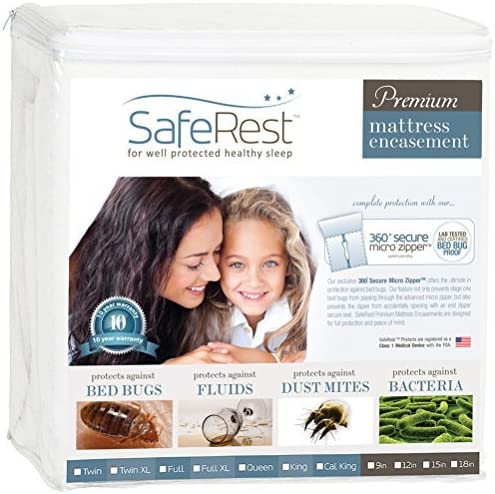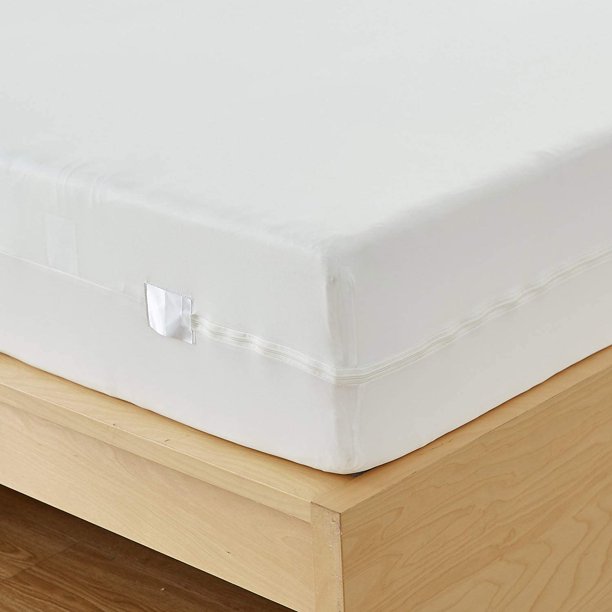'Traveling can increase the risk of encountering bed bugs' – How to prevent them
Practice vigilance to keep bed bugs at bay by engaging in these methods for preventing bed bug infestations
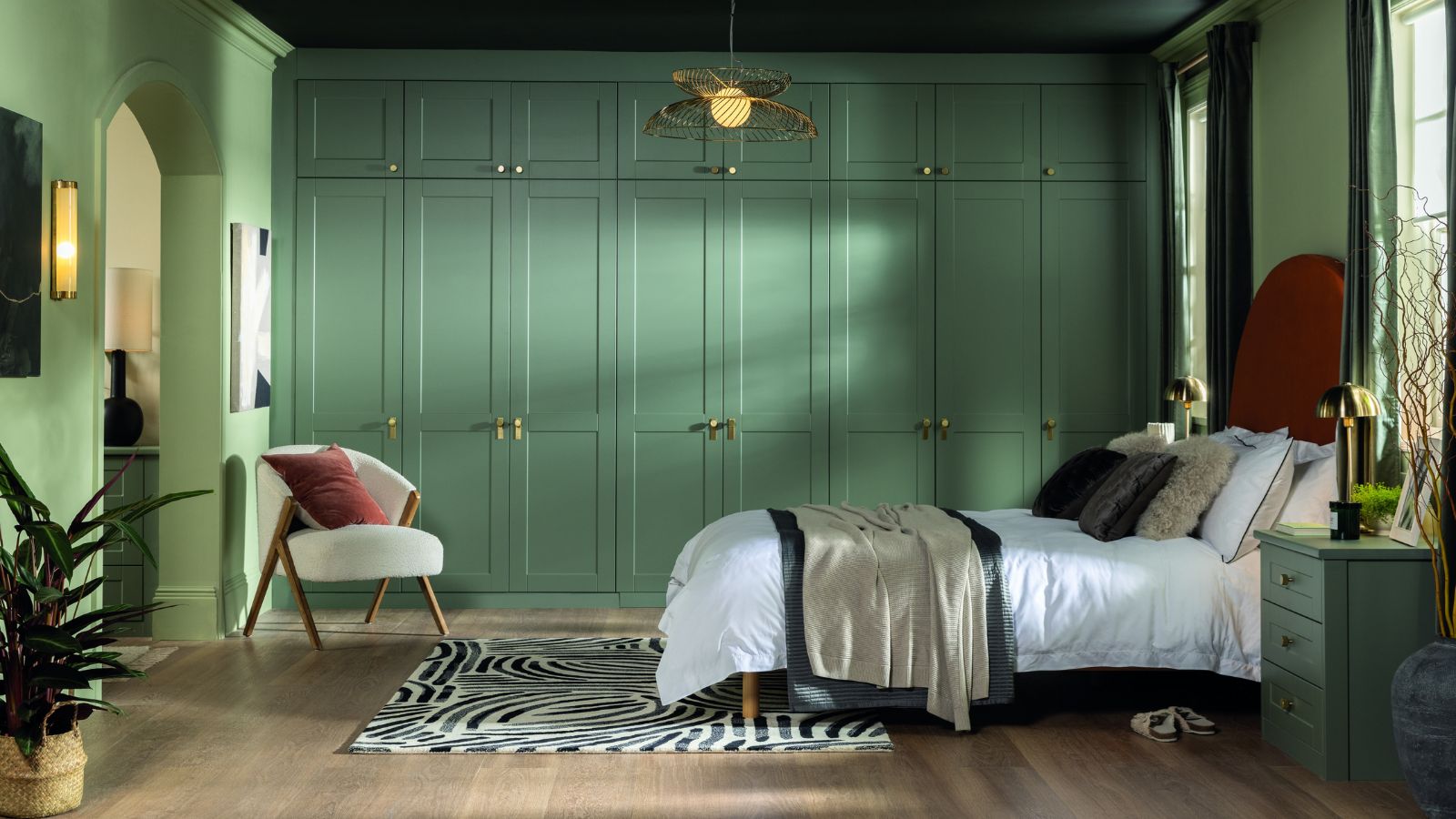

Bed bugs can be a frustratingly tricky and costly thing to get rid of, which is why prevention is key. Preventing bed bugs requires a combination of proactive measures that should keep these pests from invading your home.
Bed bugs are notorious hitchhikers and can easily infest luggage, clothing, and even books during travel or through second-hand items. It's important to stay vigilant to identify them before they can invade your personal belongings and space.
Our experts have provided their top tips for identifying and preventing bed bugs, so you won't even have to worry about how to get rid of bed bugs.
How to prevent bed bugs
These pests are a nuisance to get rid of and can live on furniture, leaving itchy, red welts on your body, which is why prevention is key.
Preventing bed bugs begins with cleanliness and careful inspection. 'Develop a bed bug management plan that includes regular inspections, immediate action upon discovery, and collaboration with pest control professionals when needed,' recommends Hashi Mohammed, president of Ivy Cleans.
1. Inspect for bed bugs
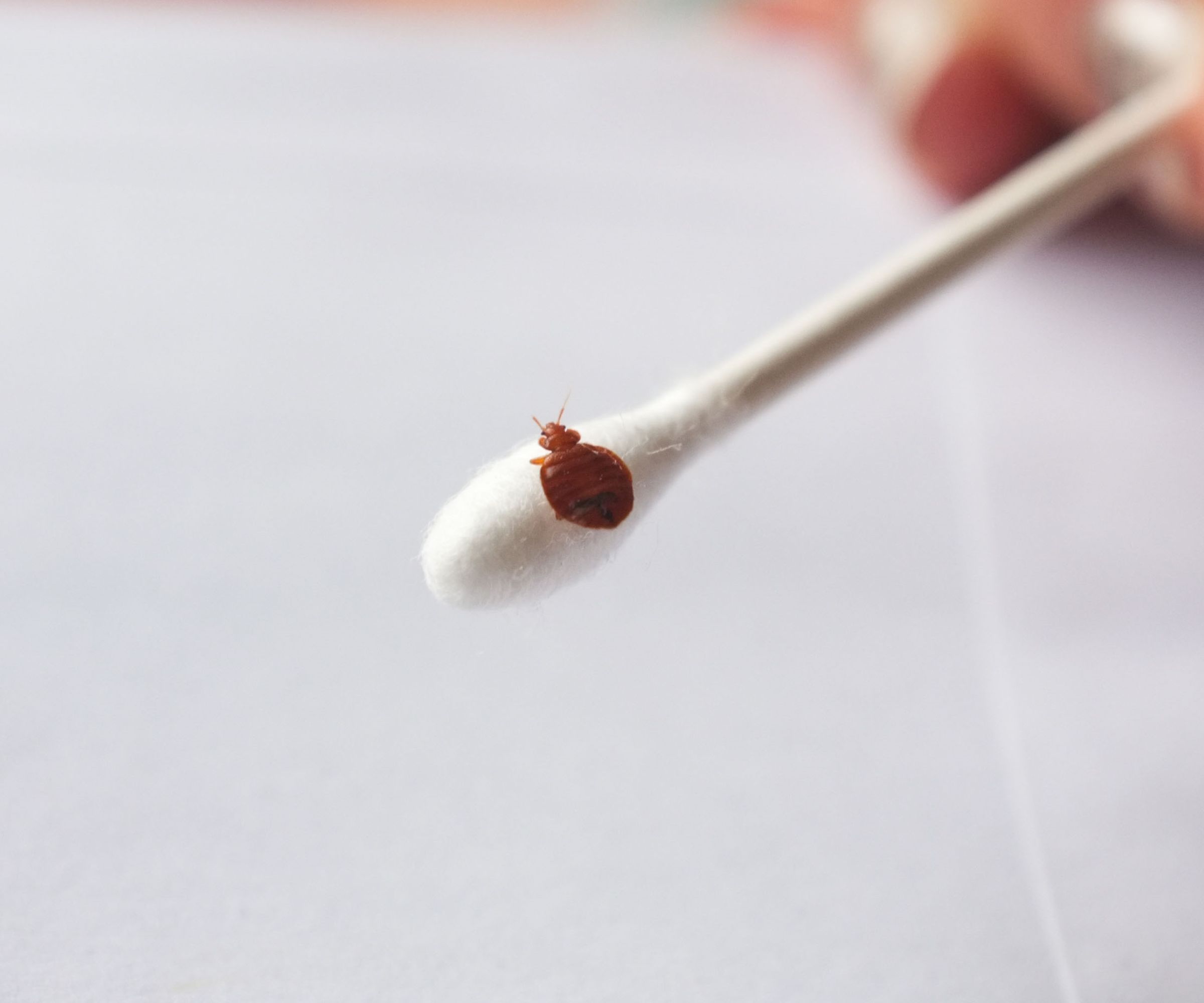
'To prevent bed bugs effectively, it's crucial to check the signs of bed bug infestations,' advises Hashi Mohamed. 'Regular inspections of the areas you clean, particularly in hospitality establishments, should be routine to detect early signs of infestations.'
Martin Seeley, sleep expert and founder of Mattress Next Day recommends, 'Firstly, regularly inspect your mattress, box spring, bedding, headboard, and crevices under the bed for any signs of bed bugs.
'To identify bed bugs, look for small, reddish-brown insects with flat, oval-shaped bodies. They are typically about the size of an apple seed. Also, keep an eye out for tiny black or brown fecal spots on bedding or furniture, as well as small white eggs.'
2. Use protective covers
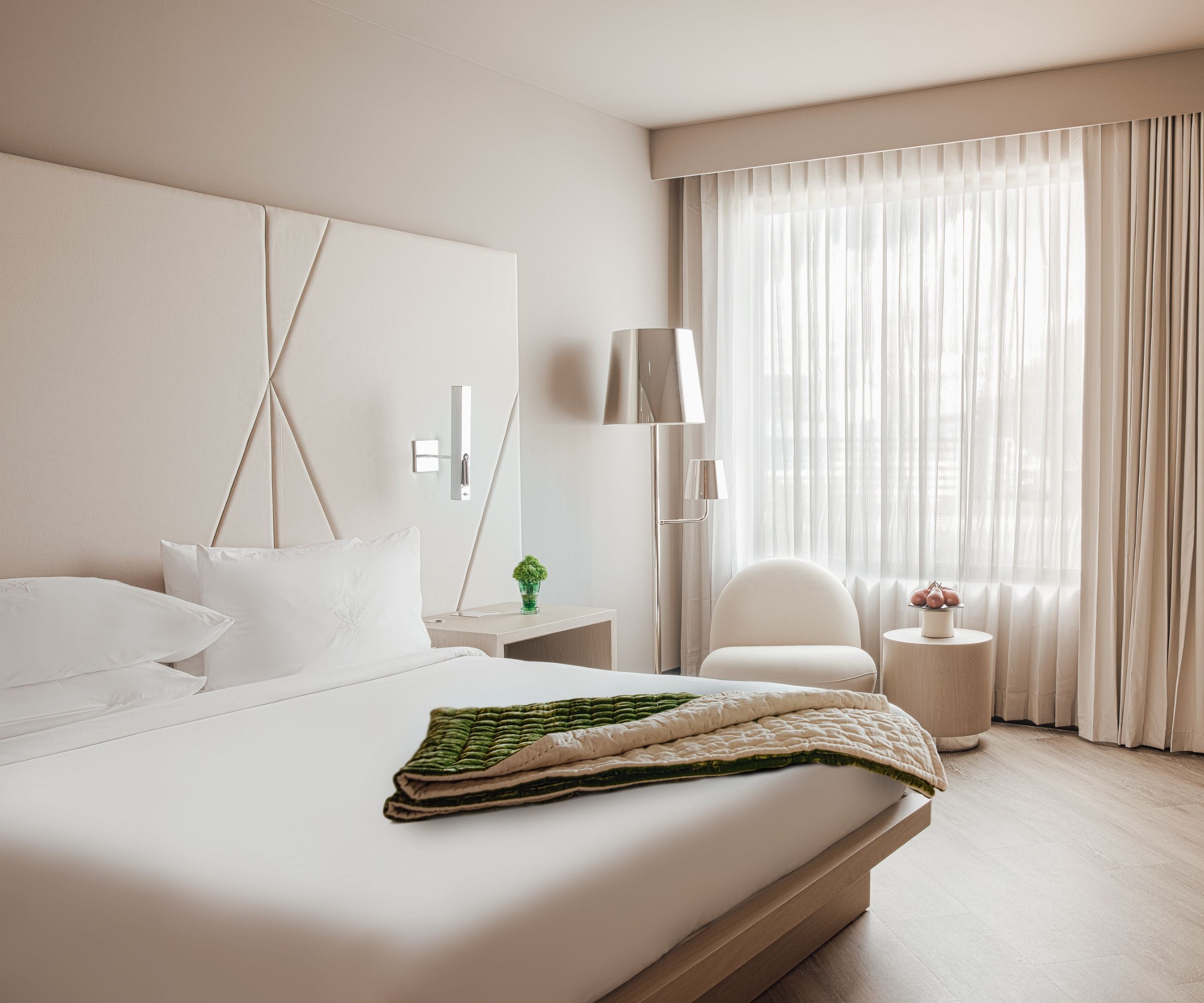
'Encase your mattress, pillow and box spring in bed with bug-proof covers toto minimize the risk of bed bugs infiltrating your belongings,' says Martin Seeley.
These specialized encasements are designed to enclose your bedding completely, creating a barrier that makes it difficult for bed bugs to infest your sleeping area. Regularly inspect these covers for any signs of tears or damage.
You can find the best mattress protector to prevent bed bugs in our dedicated guide.
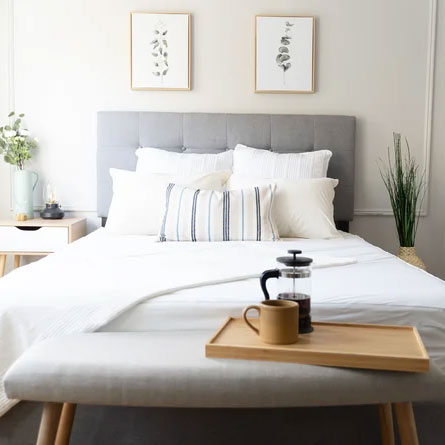
It is without a doubt that zippered mattress protectors are the most effective at protecting us from bed bugs. This breathable choice also protects from 99.9% of household allergens, like pollen, pet dander, and dust mites, from collecting on your bed.
3. Engage in preventative practices

The next step for preventing bed bugs is to engage in preventative practices at home and when traveling.
You should maintain good hygienic practices at all times, ensuring to regularly wash your bedding sheets, pillowcases, and blankets, in hot water to kill any potential bed bugs or eggs.
Michael Gottron, owner of Germicidal Maids advises, 'Maintaining a clean and decluttered environment is key. Pay special attention to cracks and crevices where bed bugs can hide.'
'Thoroughly vacuum all areas, including seams and upholstered furniture, using a HEPA-filtered vacuum cleaner, and dispose of the vacuum contents in an outdoor trash bin,' recommends Hashi Mohammed. We suggest this Eureka NEC185 vacuum cleaner, from Amazon.
Next, Martin Seeley suggests, 'When traveling, inspect hotel rooms before settling in, and use luggage racks rather than placing bags on the floor or bed. Wash and dry your clothes on high heat after returning from trips, as bed bugs can hitch a ride in your luggage.'
'After traveling, inspect your luggage, clothing, and personal items before bringing them into your home,' advises Angela Rubin from Hellamaid. 'Shake out and vacuum your suitcase, and consider using luggage liners or bags designed to prevent bed bugs.'

Hellamaid is an award-winning cleaning company in Canada that's been featured on multiple global media brands.
4. Avoid bed bug-prone items
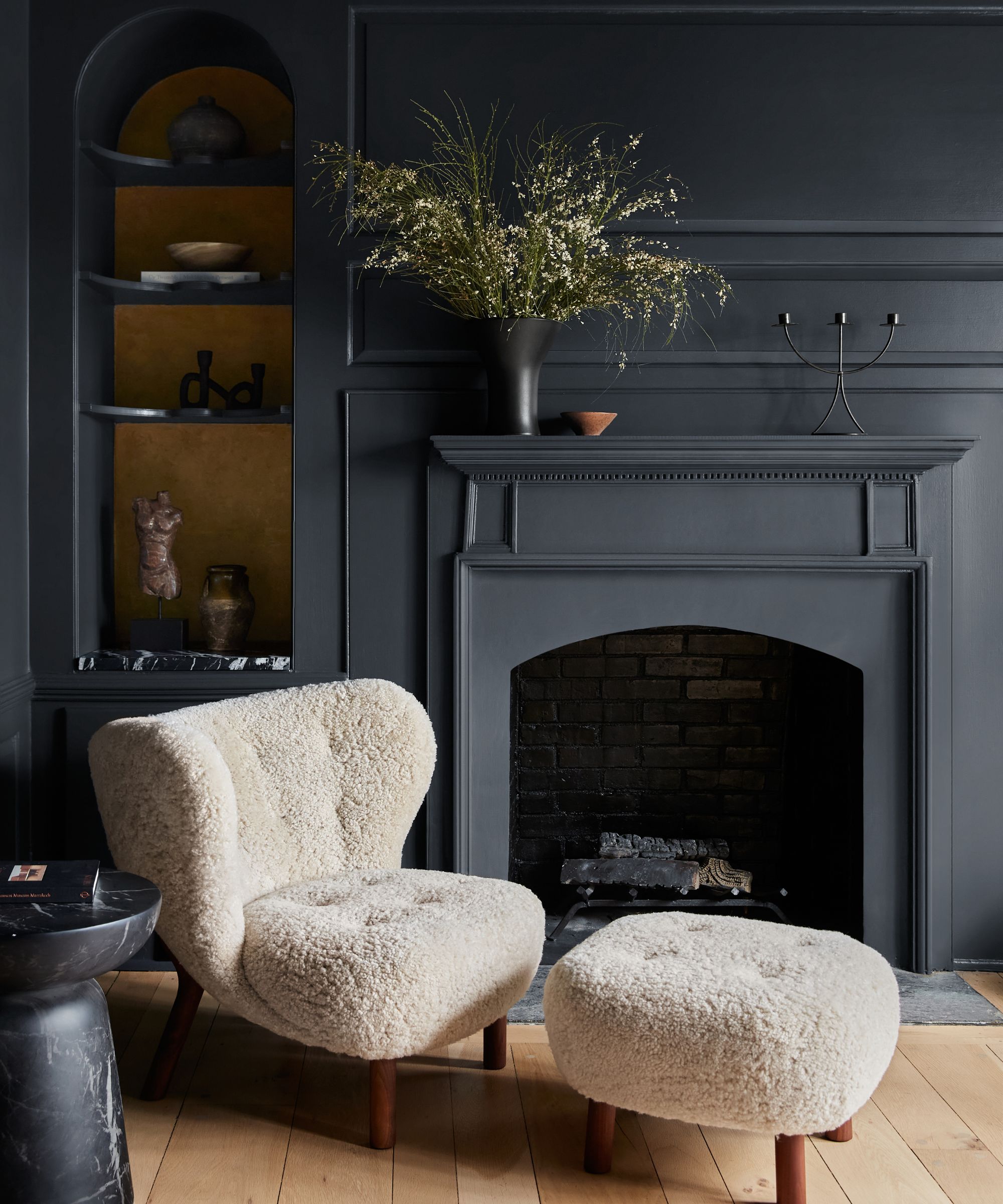
'Avoid buying second-hand furniture or mattresses,' warns Martin Seeley, 'as they may carry hidden infestations.'
Pay close attention to seams, folds, and any cracks or crevices where these insects might hide. Look for blood marks, dark-colored bed bug droppings, and the bugs themselves on all second-hand furniture, bedding, and clothing. If you notice any red flags, it's best to avoid the purchase or consider professional bed bug treatments before bringing them home.
FAQs
How can I prevent bed bugs while traveling?
'Traveling can increase the risk of encountering bed bugs, so take precautions to avoid bringing them home,' says Martin Seeley, sleep expert. 'Before unpacking in a hotel room, inspect the mattress seams, headboard, and nearby furniture for signs of bed bugs.
'Use bed bug-proof encasements for your luggage and keep bags away from potential hiding spots.'
Pest expert at Fantastic Services, Georgios Likopoulos suggests, 'Elevate your luggage and other personal belongings. If possible, move the luggage rack away from the wall to reduce the risk of bed bugs crawling up and into your belongings. The metal legs of luggage racks prevent bed bugs from climbing up them since they hide in soft spots.
'Inspect your luggage before checking out to ensure you haven't picked up any insects. Check your bags and clothing upon returning home, as bed bugs are excellent hitchhikers. It is recommended that you unpack and check your belongings in your garage or bathroom.'
Martin Seeley continues, 'After returning from a trip, wash and dry your clothing on high heat to kill any bed bugs that may have hitchhiked.'
'When traveling, consider using a bed bug travel spray on your luggage and personal items to repel these pests. These sprays are typically safe for use on fabrics and can provide an additional layer of protection.'
Kerry Sherin, at Ownerly warns, 'Bed bugs can stow away in books and even your favorite toiletry kits. Pack your clothing, shoes, and other stuff in small plastic bags –this will give you a solid defense against these tiny invaders. Remember, a little vigilance can go a long way in avoiding a whole host of problems down the line.'
Bed bugs are easier to manage when caught early. If you suspect an infestation, seek professional help immediately.
Sign up to the Homes & Gardens newsletter
Design expertise in your inbox – from inspiring decorating ideas and beautiful celebrity homes to practical gardening advice and shopping round-ups.

Lola Houlton is a news writer for Homes & Gardens. She has been writing content for Future PLC for the past six years, in particular Homes & Gardens, Real Homes and GardeningEtc. She writes on a broad range of subjects, including practical household advice, recipe articles, and product reviews, working closely with experts in their fields to cover everything from heating to home organization through to house plants. Lola is a graduate, who completed her degree in Psychology at the University of Sussex. She has also spent some time working at the BBC.
-
 How a British designer brought together the different tastes of a couple wanting to create the dream future-proofed home in the idyllic Italian countryside
How a British designer brought together the different tastes of a couple wanting to create the dream future-proofed home in the idyllic Italian countryside‘They wanted a house that would feel immediately like home the minute they arrived, and somewhere relaxing to spend time together as a family and entertain friends.’
By Fiona McCarthy
-
 What is your birth month herb? Discover the symbolic meaning behind yours
What is your birth month herb? Discover the symbolic meaning behind yoursHerbs offer symbolic wisdom, and play to the natural rhythms of the season
By Lola Houlton
